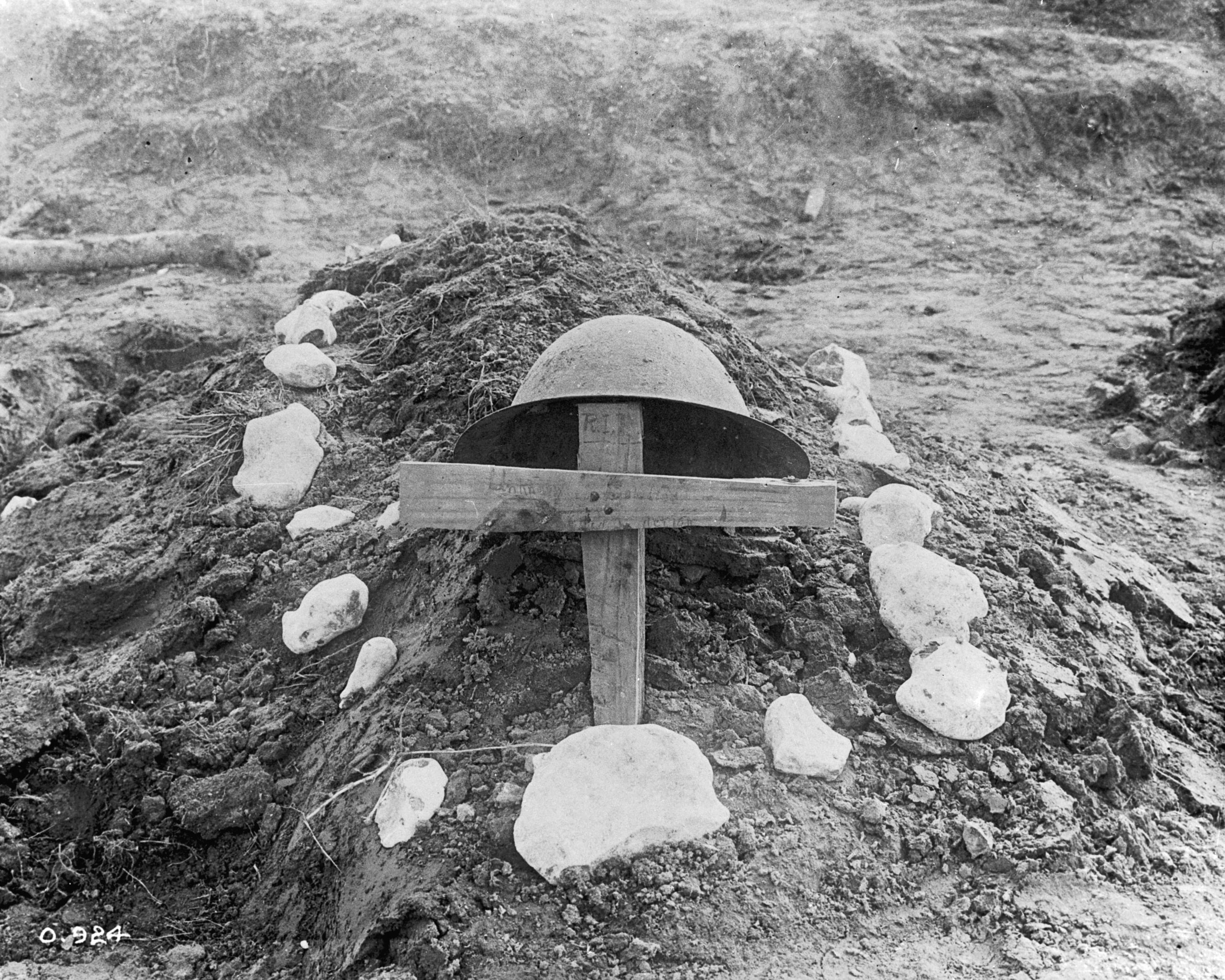On October 24, 1921, in the French town of Chalons-sur-Marne, an American sergeant selects the body of the first “Unknown Soldier” to be honored among the approximately 77,000 United States servicemen killed on the Western Front during World War I.
According to the official records of the Army Graves Registration Service deposited in the U.S. National Archives in Washington, four bodies were transported to Chalons from the cemeteries of Aisne-Marne, Somme, Meuse-Argonne and Saint-Mihiel. All were great battlegrounds, and the latter two regions were the sites of two offensive operations in which American troops took a leading role in the decisive summer and fall of 1918. As the service records stated, the identity of the bodies was completely unknown: “The original records showing the internment of these bodies were searched and the four bodies selected represented the remains of soldiers of which there was absolutely no indication as to name, rank, organization or date of death.”
The four bodies arrived at the Hotel de Ville in Chalons-sur-Marne on October 23, 1921. At 10 o’clock the next morning, French and American officials entered a hall where the four caskets were displayed, each draped with an American flag. Sergeant Edward Younger, the man given the task of making the selection, carried a spray of white roses with which to mark the chosen casket. According to the official account, Younger “entered the chamber in which the bodies of the four Unknown Soldiers lay, circled the caskets three times, then silently placed the flowers on the third casket from the left. He faced the body, stood at attention and saluted.”
Bearing the inscription “An Unknown American who gave his life in the World War,” the chosen casket traveled to Paris and then to Le Havre, France, where it would board the cruiser Olympia for the voyage across the Atlantic. Once back in the United States, the Unknown Soldier was buried in Arlington National Cemetery, near Washington, D.C.
